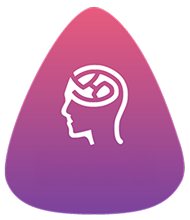Write down one limiting belief about your academic ability, replace it with a fact you can act on today.
Say aloud a strength of yours that disproves an academic doubt. Repeat it with confidence.
Choose a simple task you’ve avoided due to doubt, start it and set a ten-minute timer to stay focused.
Put a sticky note on your desk with a positive counter-belief. Read it before every study session.
Swap negative self-talk with a “What if I can?” statement, test it in a safe academic setting.
Visualize yourself succeeding at something academic you believe you can’t do, notice how it feels.
Journal about a recent study decision shaped by doubt, how would confidence have changed your choice?
Write the origin story of your strongest academic doubt, where did it start and how has it shaped choices?
Reflect on three students who challenged limits, what beliefs helped them break through fear?
Note one missed opportunity in studies caused by doubt, how would you approach it differently now?
Describe your internal critic in studies, what voice does it use, and how rational is it on reflection?
List beliefs you hold about your academic success, highlight those that sound like permanent limits.
Say yes to one academic opportunity you’d normally reject out of doubt. Track what happens next.
Share a bold idea in seminar, even if your belief says it isn’t “smart enough.” Reflect afterward.
Offer to present something you’d normally avoid, focus on showing up, not perfection.
Set a micro-goal that challenges a limiting belief, complete it even if uncomfortable.
Ask for something you need but were too hesitant to request, feedback, advice, or resources.
Rewrite your CV with one ambitious phrase that challenges your belief about academic worth.
Ask a classmate what strengths they see in your academic work that you might underestimate in yourself.
Share one limiting belief with a classmate, ask if they’ve ever thought the same and how they overcame it.
Request feedback after a seminar where you spoke despite fear, compare it with how you felt inside.
Ask a peer to share a time they doubted themselves and pushed through, what helped them?
Record three positive things peers said about you this week, note which ones surprised you.
Create a feedback loop with a peer to challenge limiting academic stories you both carry.
Rewrite “I’m not smart enough” as “How might I learn faster in this subject?”, act on it today.
Turn “I always fail exams” into “I’m still learning how to master them”, notice the mental shift.
Reframe a past academic failure as data, what did it teach me for my next challenge?
Translate “I’m not ready” into “I’m preparing”, list one action that brings me closer today.
When I think “I can’t,” ask “Who says?”, challenge the credibility of that inner voice.
Change “I never…” to “I haven’t yet…”, open space for learning and forward growth.
Track when your inner voice says “I’ll never get this” or “I always fail”, what triggers it in studies?
Observe a peer you admire, how do they self-talk after mistakes or stressful moments?
Catch yourself mid-thought when hesitating, what limiting belief is beneath that pause?
Listen for limiting beliefs in peers during study groups, do you share any of the same thoughts?
Note your physical cues during doubt, tension, breath, or avoidance, what belief drives them?
Notice how fast you dismiss compliments or chances, what limiting belief drives that?


 Give Feedback
Give Feedback
